More than 300 people have died during the lockdown, but not because of coronavirus. Who is responsible for these deaths?
Starvation, financial distress, police atrocities following lockdown violations, lack of timely medical treatment, fatigue, and suicides due to loneliness are some of the reasons behind these deaths. Could we have prevented these deaths?
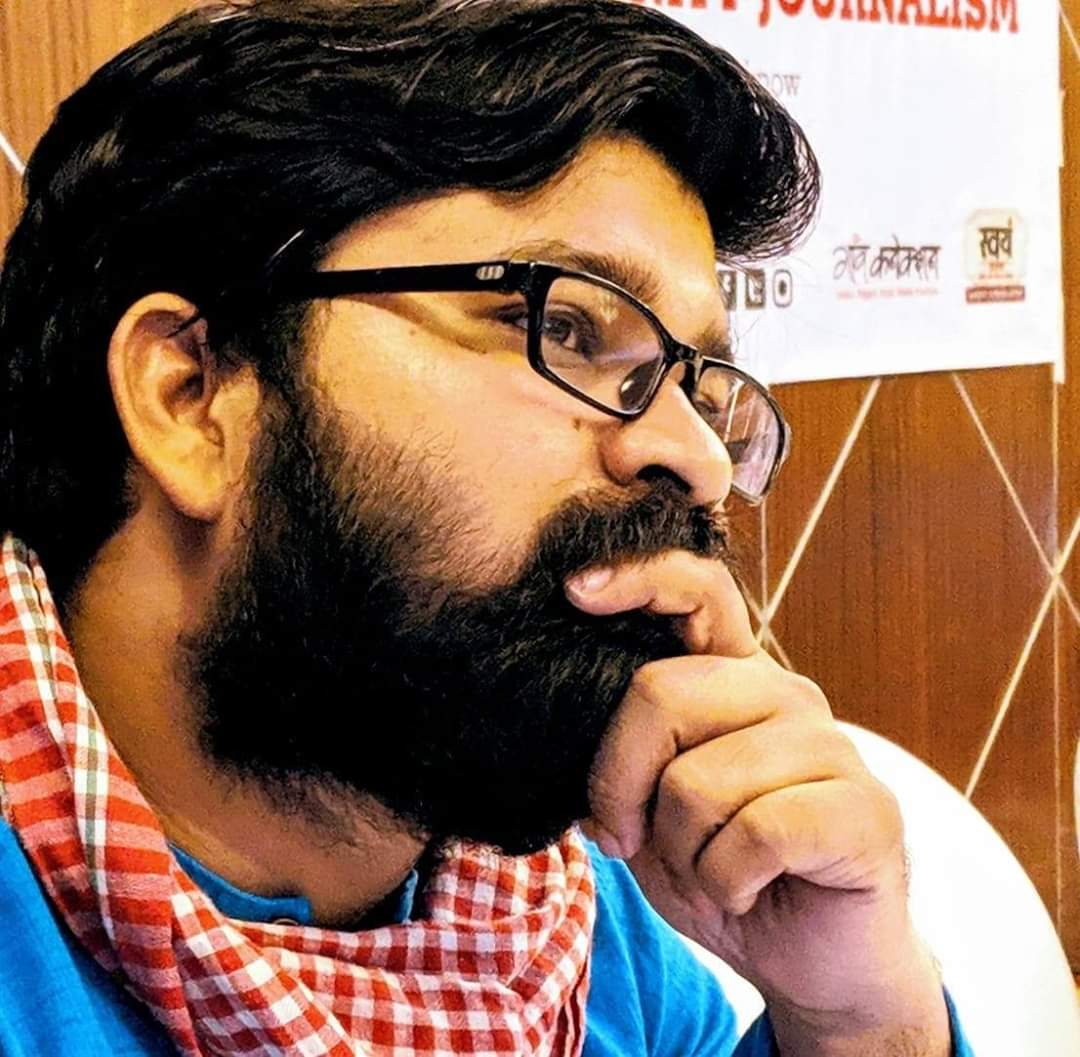
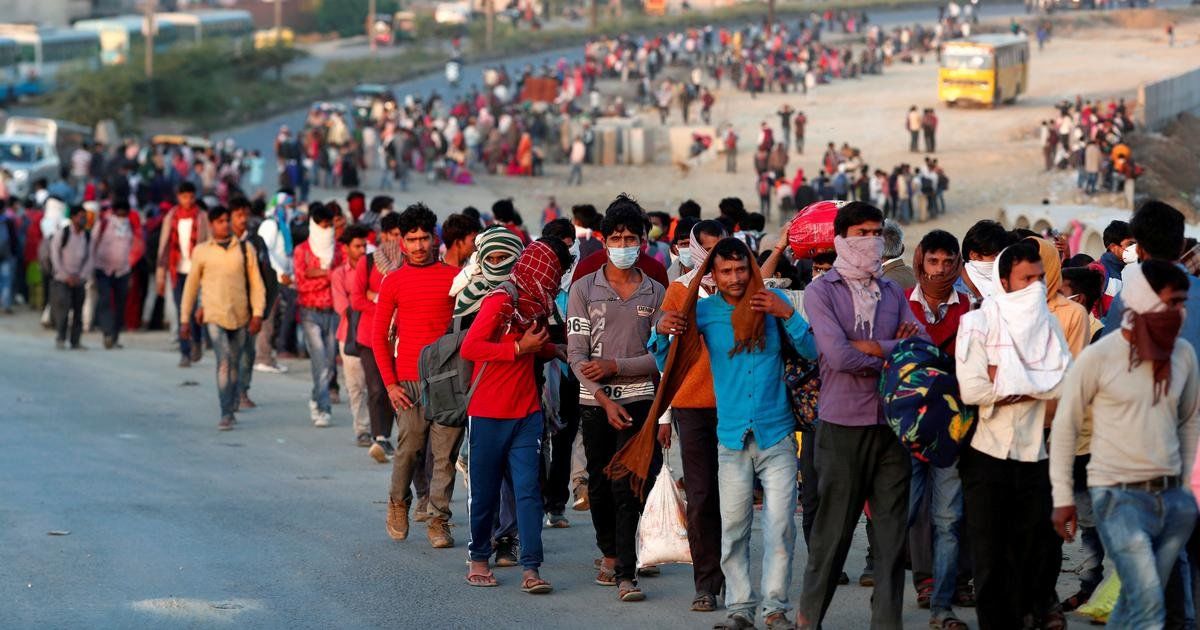
The entire country is under lockdown from March 24. While most of us are locked in to protect ourselves from contracting the virus, there are lakhs of people who are stranded and are finding it incredibly difficult to stay where there are. The return of migrant workers, labourers has been a burning issue for the past few days. From May 1, the government has been running special trains and buses for them.
While many people have lost their lives because of the virus, as per a report, so far, more than 300 deaths have occurred due to coronavirus, but not because of the virus; deaths that could have been avoided.
On March 25, Tabrak Ansari, 50, had left for Maharajganj district of Uttar Pradesh from Bhiwadi in Maharashtra with 11 of his friends, but he could never reach his home. He died on his way at Sandhwa in Madhya Pradesh. The total distance from Bhiwadi to Maharajganj is about 1,600 kms, but Tabrak could only cover a total of 390 kms.
Ramesh Pawar was also travelling with the Tabrak. He informed Gaon Connection over the phone: “Tabrak passed away on Thursday, March 30 at Sandhwa near Barwani in Madhya Pradesh. He had a heart attack. Eleven of us had left upon our bicycles. We used to work in a power loom in Mumbai, but had been rendered jobless due to the lockdown. We did not have money even to feed ourselves.”

Similarly, on March 27, Dharamvir (28), along with seven of his colleagues, had set off on his bicycle from New Delhi to Kharita village in Khagaria district of Bihar. But he fell sick at Shahjahanpur in Uttar Pradesh and died.
In a statement to the media, the Shahjahanpur police said: “One member from Dharamvir’s group had called Dial 112 and informed about his poor health. When our team arrived, Dharamvir was having difficulty in breathing and then he had suddenly fainted. We took him to the medical college, where the doctors declared him dead.”
Dharamvir was accompanied by many people from his district and village. One among them, Ramniwas, said: “We used to live in the Shakur basti in New Delhi. We had no work since the lockdown. We were jobless. We could only stay there for 34 days. We used to ask or were helped by people for food, but for how long could this have continued?”
He added: “We had felt that if we stay there any longer, we would die of hunger. So, we decided to return home. At least, we’d die amid our own people. Since the trains were not running, we started on our bicycles. After four days of cycling, we reached Shahjahanpur on Thursday night and ate at a temple. On Friday, May 1, Dharamvir had taken ill.”
The distance from New Delhi to Khagaria is about 1,300 kms.
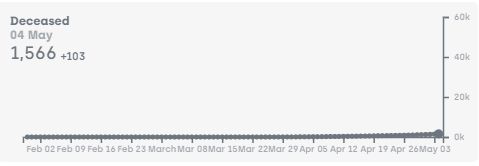
Insaaf Ali, 35, a resident of Shravasti district in Uttar Pradesh, travelled 1,500 km in 14 days and reached Malhipur on April 27. Shortly after arriving, he died at a quarantine centre. The health team conducted an on the spot sample testing in which he was found to be corona negative.
Devendra Pandey, the Malhipur police station sub-in charge, informed: “There was no clear cause of death. We handed over the body to the family members. The report of the father of the deceased also came negative.”
Salma Begum, the wife of Insaaf, said: “He used to work there as a construction worker. I had been to my mother’s house when we spoke last. He had told me then that he was surviving on biscuits. On the way home, he also managed to get a few rides upon trucks. Thereafter he had walked on foot. At many places, he was apprehended by the police. Then suddenly he had stopped calling. It was later revealed that these people had reached home. After coming to the village, he had fallen sick.”
Hari Prasad, 26, had walked his home to Chittoor in Andhra Pradesh from Bengaluru, the capital of Karnataka. He walked for 121 kms and reached the threshold of the village when he fell unconscious. He was rushed to the hospital for treatment, but could not be saved.
He used to run a rented taxi in Bengaluru. After the lockdown, he wasn’t getting much to eat. His family asked him to come back home. Since the trains were not running, he set out on foot. His house is in the Meetapalli village in Chittoor in Andhra Pradesh. His parents are agricultural labourers.
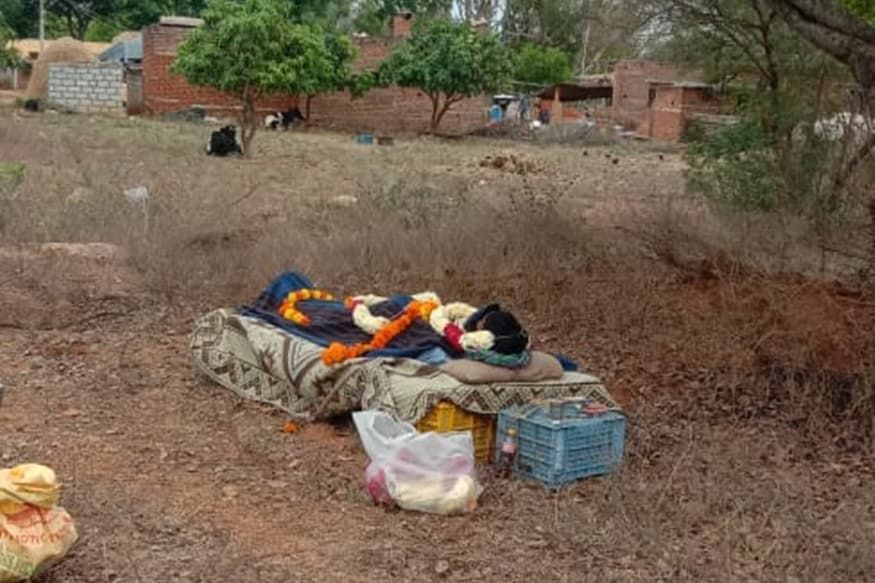
His younger brother Mallikarjun (23) told Gaon Connection over the phone: “He came from Bengaluru on Monday, April 27. He had walked continuously for three days and travelled 121 kms to arrive in the village on the morning of Wednesday, April 29 when he fell unconscious. We called for an ambulance and set out to take him to the hospital, but he died on the way.”
Ranvir Singh, 39, from Barha Gram Panchayat in Morena district of Madhya Pradesh, used to deliver tiffins for a hotel in Delhi. All hotels had closed following the lockdown, so his income had also stopped. He thought of leaving for his home on March 27. His home was 300 kms from New Delhi, but he was able to travel only 200 kms when he died on March 28 in the Sikandra police station area in Agra.
Ranvir spoke to his sister Pinky for the last time. Pinky told Gaon Connection over the phone: “Bhaiya called on March 27 and told he would leave for home that day. He also told that since there is no train, he would travel on foot. Then he called on March 29 complaining of chest pain and cut off the phone. Thereafter, at about 7 PM, we received a phone call informing us that my brother was no more.”
Arvind Kumar, the station house officer (SHO) of Sikandra police station, said: “We made the victim lie down and gave him tea-biscuits. He had complained of chest pain. At the same time, he also called up a relative. Ranvir died at 6:30 PM. Ranvir had walked for 200 kms, that’s why he developed pain in his chest. The police were present on the entire NH-2 with food and water. The post-mortem report revealed that a heart attack had resulted in his death.”
Ranvir, Hari Prasad or Insaaf Ali … these all died during the lockdown but none was infected with corona. The number of such deaths is very high. A private website has been recording such deaths during the lockdown since the first day. According to the website, a total of 338 deaths unrelated to corona have taken place so far in the country due to lockdown. These figures have been prepared for media reports across the country.
The report has been prepared by researcher and activist Kanika Sharma, Thejesh and legal affairs expert Aman.
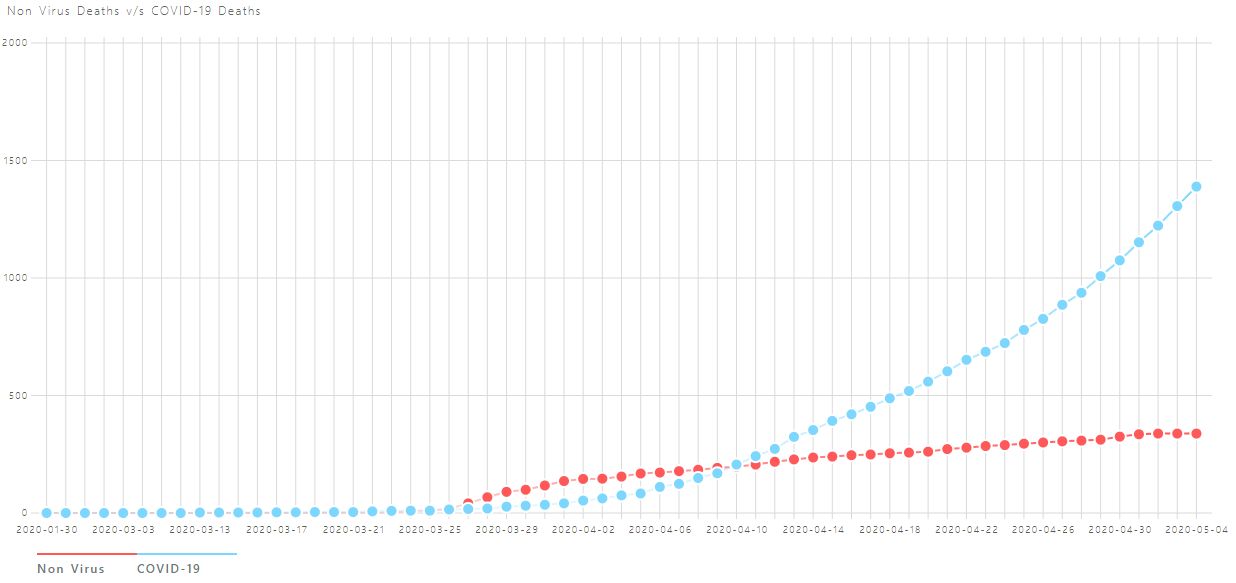
Kanika informed Gaon Connection: “More than 300 people have died during the lockdown due to hunger, lack of monetary support, due to police atrocities following lockdown violations and lack of timely medical treatment. From March 29 onwards, we have created a database by recording such deaths published in English, Kannada, Marathi, Tamil, Bengali, Odisha and Malayalam in the online news portal and social media.”
As per the database, 36 people were killed due to starvation and financial crisis (such as inability to sell agricultural produce), 24 due to fatigue (going home, queuing up ration or for money), 38 due to the non-availability of timely medical treatment and 80 people had committed suicide (fear of infection, loneliness). While 45 had died due to the non-availability of alcohol, 11 from police atrocities, 12 due to lockdown offenses and 51 migrants returning home dying in accidents. There have also been 41 other deaths for which cause was not clear.
“There are a large number of suicides caused by fear of infection during lockdown resulting from loneliness, lack of freedom of commuting and non-availability of alcohol. Many suicides are of migrant labourers who were trapped away from the family and those who lost their lives fearing infection,” she added.
She added: “The virus may not discriminate between rich and poor, but these deaths during lockdown are of the poorest of the people. Most of the deaths in the database have been of labourers or their family members. Many deaths are of farmers unable to take up losses. If people are not helped to overcome the crisis, the number of such deaths would keep on mounting.”

